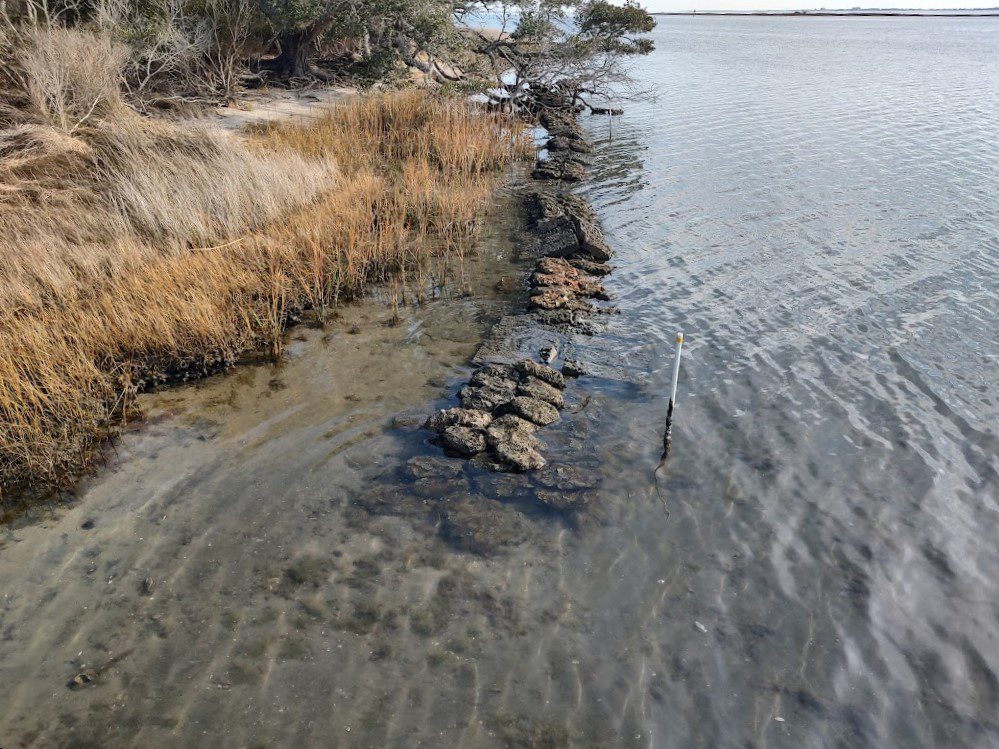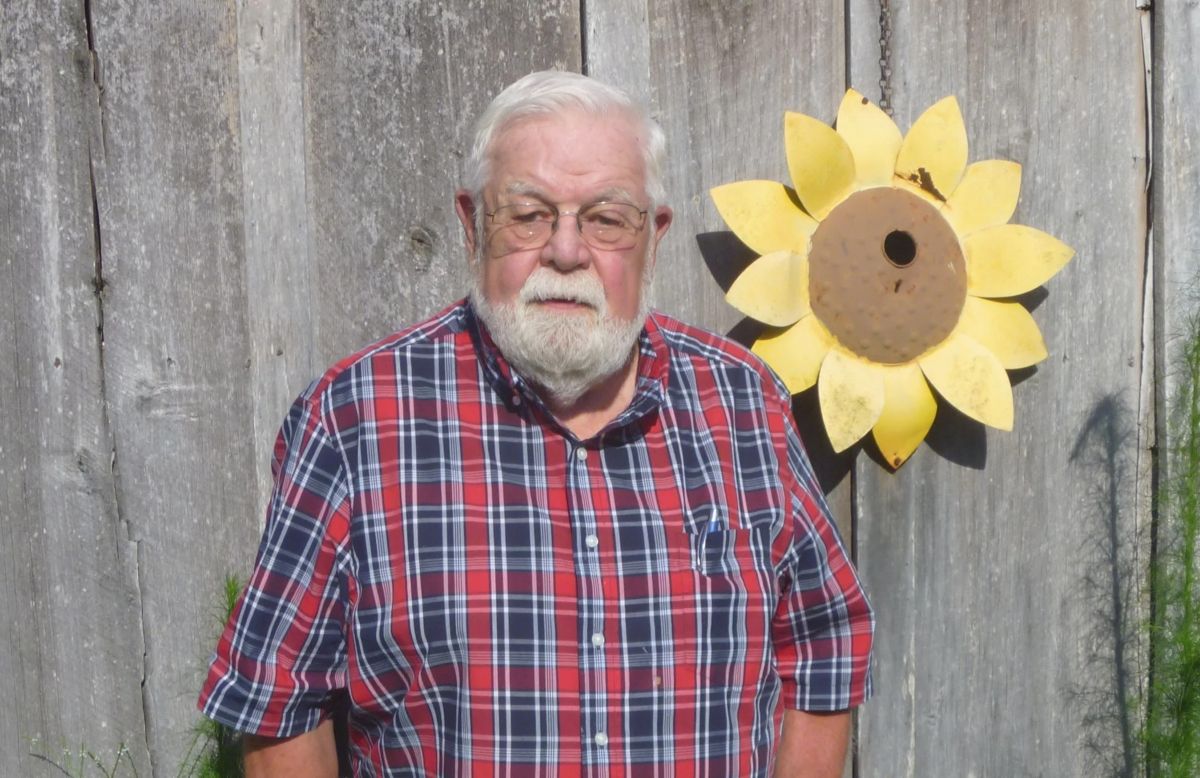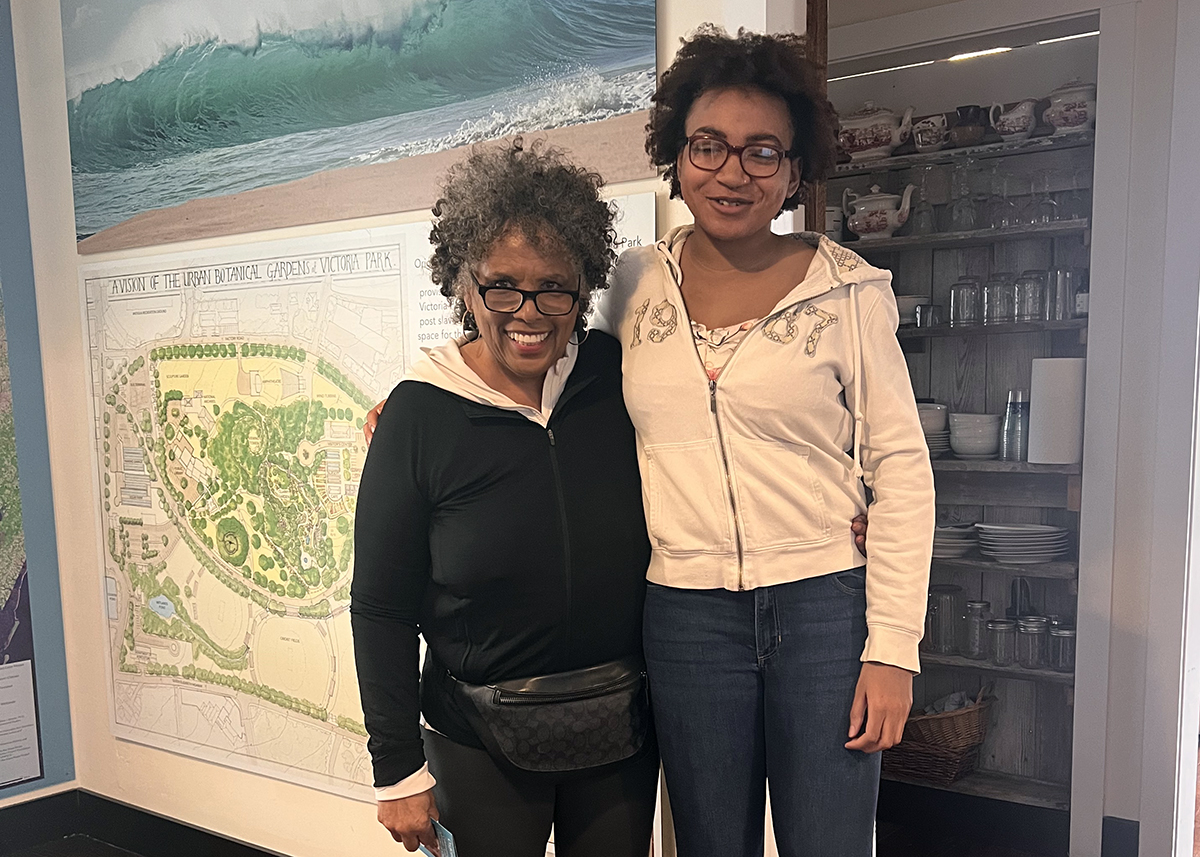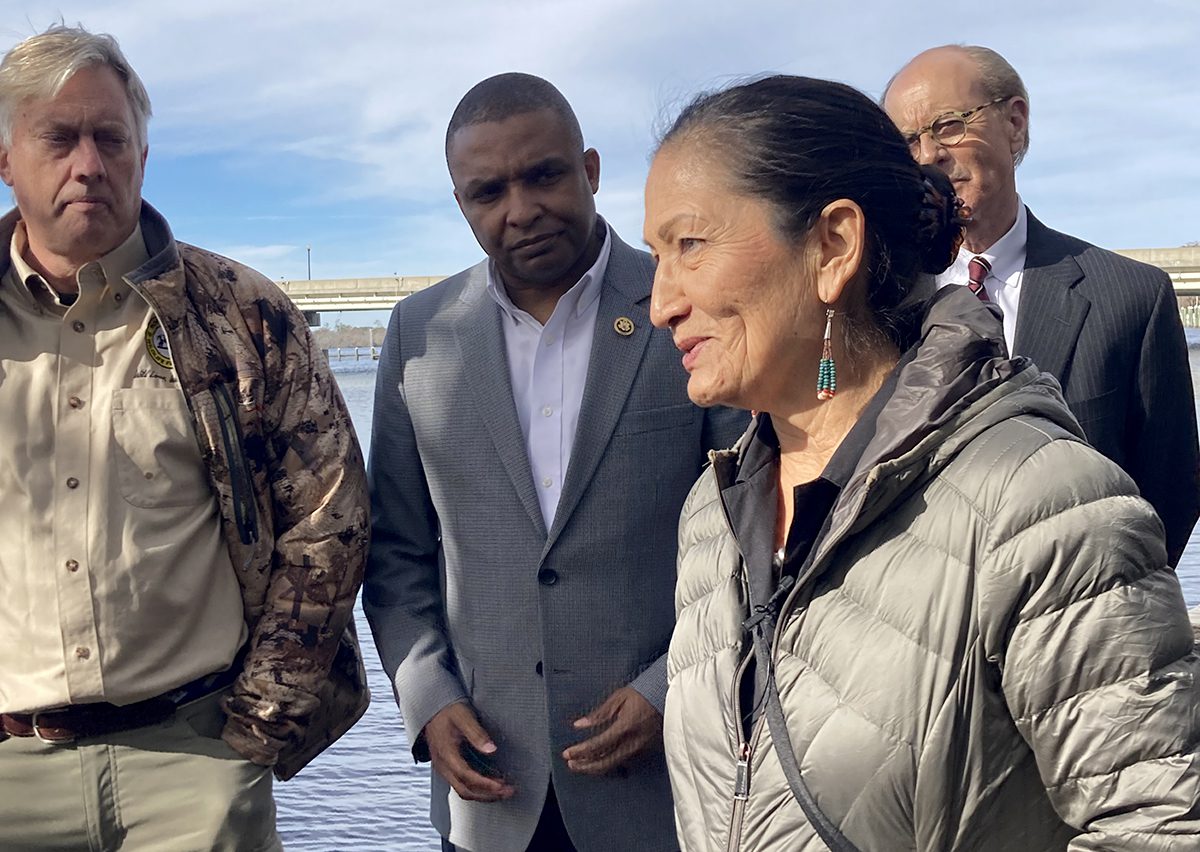
COLUMBIA — In a coastal North Carolina county that has more wildlife — by far — than people, as well as vast amounts of public lands, U.S. Department of the Interior Secretary Deb Haaland’s visit to Tyrrell County Thursday afternoon was especially significant.
“Coming here is important,” Tyrrell County Manager David Clegg told Haaland during a media event with the secretary at the Pocosin Lakes National Wildlife Refuge visitor center.
Supporter Spotlight
Haaland was in Tyrrell County to announce that $1.4 million has been awarded to the refuge from the Bipartisan Infrastructure Law to replace 1,000 feet of the badly weathered Scuppernong River Boardwalk.
“And we saw how dilapidated it is,” said Haaland, referring to a stroll she had taken earlier on the boardwalk behind the visitor center, which stretches along the river and through woods and marshlands. “Now we’ll really be ready to make it right for future visits by so many people.”
In a later interview, Clegg said he really appreciated the secretary’s openness and willingness to discuss Tyrrell and the value of Pocosin Lakes to the county.
“She has an on-the-ground understanding of what it is now,” he said. “It’s not some concept to her.”
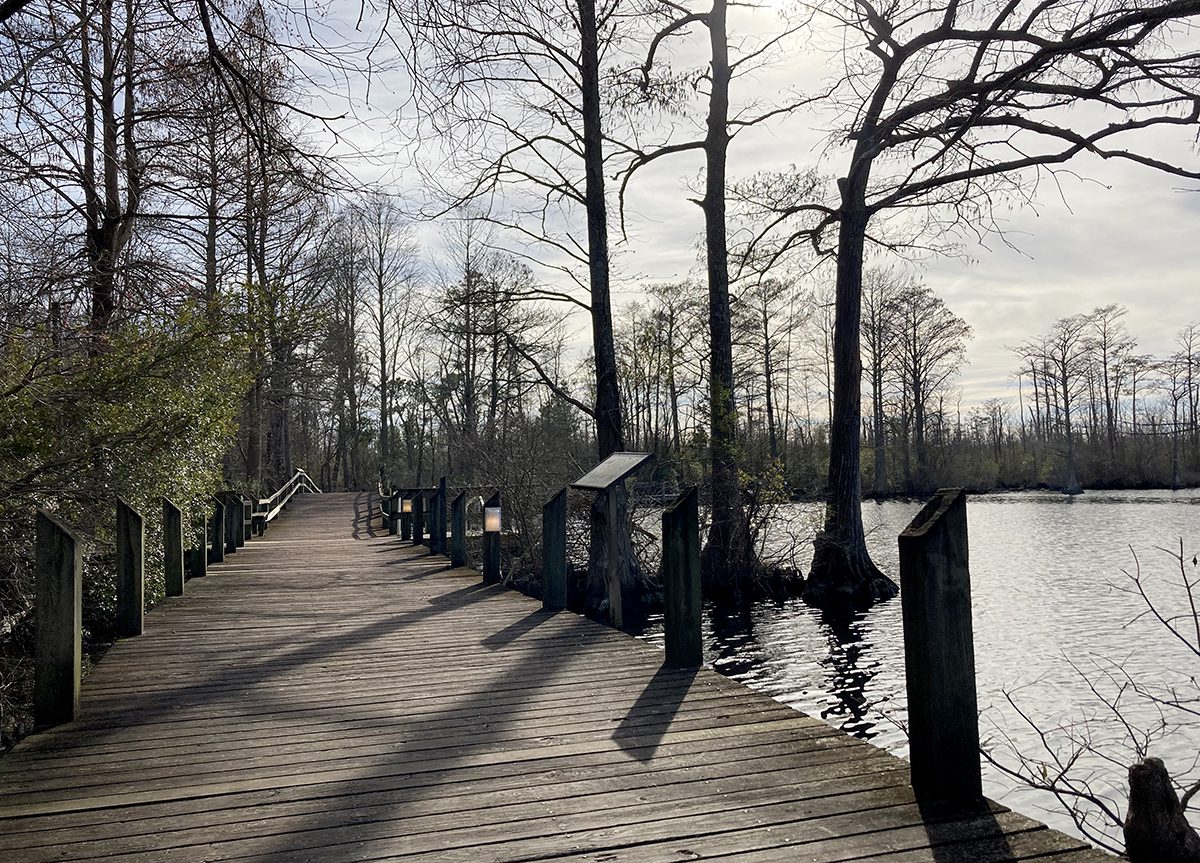
Although the boardwalk is still safe to use, it has the warped and blackened wood commonly seen in aging decks and docks in the region.
Supporter Spotlight
North Carolina Wildlife Federation CEO Tim Gestwicki recalled during his remarks the reaction he had when producers of a documentary about the area asked to take some footage outside the refuge headquarters.
“They said, ‘Let’s go out on the boardwalk,’” he recalled. “I said, ‘Oh, lord, I don’t know about that.’”
Gestwicki said he is “delighted” with the infrastructure work that is being done at Pocosin and other refuges because it will allow more access for people to enjoy being outside in nature.
The project is part of President Biden’s $157 million Investing in America agenda to restore our nation’s lands and waters through locally led, landscape-scale restoration projects, according to a Department of the Interior press release. The funding from the Bipartisan Infrastructure Law will support 206 ecosystem restoration projects in 48 states, Washington, D.C., and the U.S. territories.
Projects will focus on a restoration and resilience framework that builds climate resilience and addresses impacts, restores lands and waters, and enhances the quality of life for communities.
“What I love is the framework serves as a roadmap to where we can make the greatest difference,” Haaland said. “By grounding the framework in landscape-level projects like this here at Pocosin Lakes, it will supercharge our efforts to foster biodiversity and restore the habitats we all depend on.”
Tyrrell fits the program’s target as a rural, historically underserved community.
With about 43% of its 735 square miles owned by state and federal governments, much of the county’s economy is still based in agriculture and forestry. But the tax base is shrinking, along with the population, which is currently 3,200 people, compared with 3,645 in 2016. The county is also considered one of the most vulnerable per capita to sea level rise impacts.
Clegg, the county manager, emphasized in his remarks that while Tyrrell might be remote and economically disadvantaged, its diverse ecosystems have outsize value to the natural world, replete with estuarine shorelines, pocosin wetlands, and agricultural vistas. For that reason, the county is primed to grow its ecotourism economy.
“You can find bear, wolves, deer, wildcats, swan, duck, eagles, egret, beaver, otters, alligators, foxes, turtles, crabs, fish, quails, snakes, salamanders and raccoons,” he recited in one long breath, ending to applause.
But Tyrrell County, despite its riches and challenges, is often lost in the shuffle when it comes to helpful government attention — making an important national official such as Haaland especially welcomed.
“They say you don’t care about us,” said 1st District Congressman Don Davis, a Democrat from Snow Hill, when addressing Haaland. “Well guess what? You’re here.”
Davis said his office works closely with the Interior Department and other agencies to assist local communities in meeting criteria so projects such as the Pocosin boardwalk can be completed.
“This is an awesome federal investment,” he said.
The Investing in America project also will partner with states and other recipients to address drought and wildfire resilience, recreational access, legacy pollution from former mines, invasive species management, and restoration of native plants and ecosystems.
More than half of the projects will also benefit historically underserved communities, as part of Biden’s Justice40 Initiative, an environmental justice effort that aims to direct 40% of certain federal benefits to “disadvantaged communities that are marginalized, underserved, and overburdened by pollution,” according to the White House.
During a brief Q&A with media before she left, Haaland expressed appreciation for the Pocosin Lakes refuge and its staff, and she made a promise that Tyrrell no doubt hopes come true.
“I never pass up an opportunity to tell the staff how much they mean to us,” Haaland said. “I couldn’t be prouder to stand here today and I’ll come back again.”



